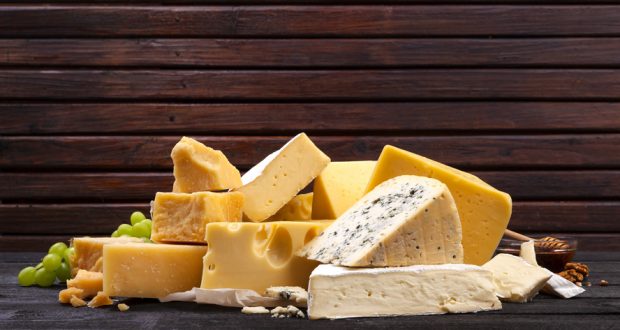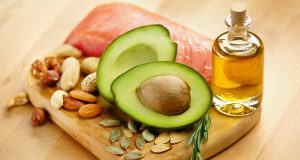Say cheese! Science has linked consumption of the delicious dairy delight to a reduced risk of cardiovascular disease.
In this analysis of 15 different research studies, individuals who regularly consumed cheese were nearly 20% less likely to develop cardiovascular disease, and 10% less likely to have a stroke, compared to those who did not consume cheese regularly.
More than 200,000 participants were involved in the studies, with cheese intake and health status being monitored for over ten years.
Researchers reported that the positive effects were strongest among participants who consumed just shy of one and a half ounces of cheese daily.
While tasty, many of us do not consider cheese to be particularly nutritious… well it’s time to reconsider! Cheese contains vital nutrients like calcium, zinc, vitamins A and B-12, but let’s not forget about the fat.
For decades, fat was made out to be the enemy of health. However, science is now changing the way we view fat as a part of a healthy diet. Fat is an essential nutrient.
The body needs fat in order to function properly. For example, fat is necessary for the absorption of several vitamins like A, K, and E. Fat is critical for energy production, as well as, keeping hair and nails healthy. Even the brain needs fat in order to function!
Research has shown that by eating a diet rich in good fats, you can actually lower your risk of obesity, heart disease, diabetes, and high cholesterol. According to several studies, it is not the amount of fat you eat that affects health, it is the type of fat.
There are several different types of fats, each found in a variety of foods. Monounsaturated and polyunsaturated fatty acids are two “good fats.” These fats have been found to lower cholesterol and blood pressure levels, therefore, reducing risk of heart disease.
Monounsaturated fats can be found in a variety of nuts, as well as in avocado, peanut butter, and olive oil. Polyunsaturated fats, also known as omega-3 fatty acids, can be found in walnuts, and in fish like salmon and mackerel.
For decades we’ve been told that eating fat will make us fat. Well, recent research has shown that this is simply not the case.
The University of Bergen in Norway carried out a study on the effects of a diet containing saturated fats. One group was given a low-fat diet, while the other group’s diet contained fats like butter, cream, and cheese.
Participants whose diets contained the fats experienced more weight loss than the low-fat diet group, with no detrimental health effects. Pretty cool, right?
Now, when it comes to cheese selection, you will certainly have options! There are more than 2,000 types of cheese produced worldwide. That equals an incredible 20 million tons of cheese made every year across the globe!
Mozzarella is the world’s favorite cheese, with cheddar coming in second. Here in the U.S. in 2015, we consumed an astounding average of 37.1 pounds of cheese per person!
The majority of what we think of as “cheese” is cow’s milk cheese. While delicious, don’t sell yourself short when it comes to other types of cheese. Goat cheese and sheep’s milk cheese are equally delicious.
Cheeses also come in seemingly endless textural varieties: hard, soft, semi-soft, etc. The most commonly consumed hard cheeses are cheddar and Parmigiano-Reggiano. Soft cheeses like mozzarella, brie, and feta are decadently delicious, as well.
Enjoy your cheese with crackers, on top of a salad, in this tasty, cheesy low-carb bread, or by itself in a hunk you broke off with a knife. (It’s okay to admit it cheese lovers, we’ve all been there!)
Isn’t it fantastic that a food we adore has been acknowledged as a positive contributor to health? However you enjoy it… get cheesy!
Sources:
https://www.medicalnewstoday.com/articles/320249.php
 Diabetic Kitchen
Diabetic Kitchen





Recent Comments